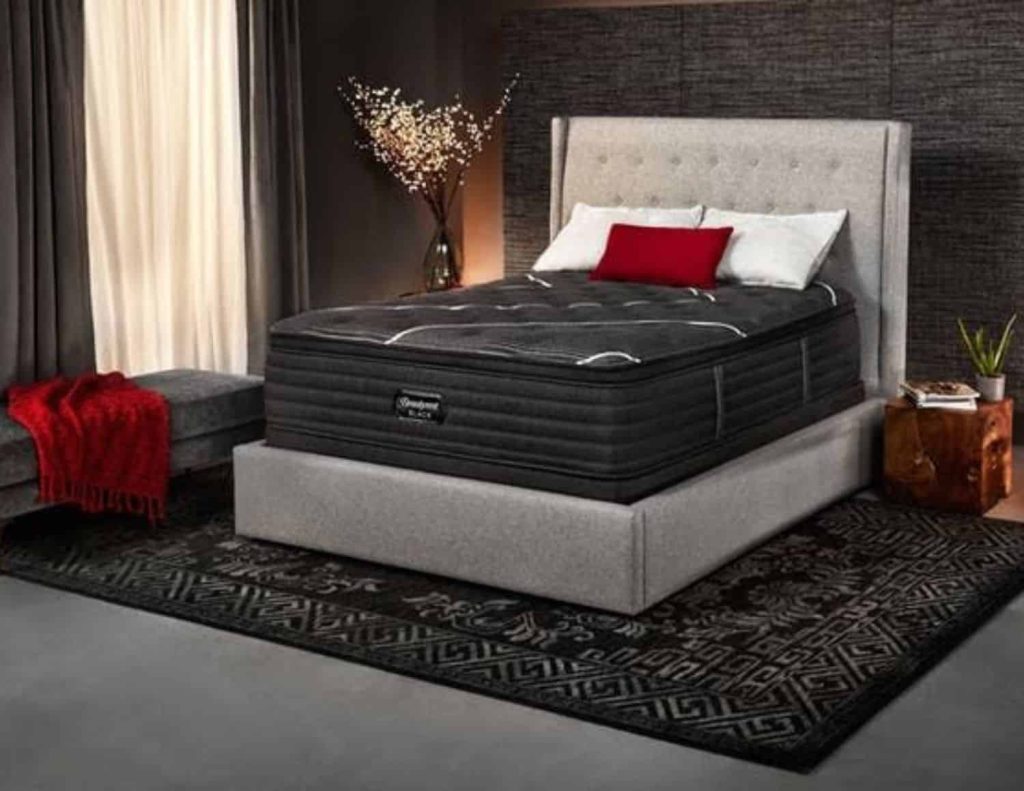

Uncomfortable hotel beds can ruin a vacation. Imagine arriving at your dream destination only to find your sleep disrupted by a lumpy mattress or stiff linens. This often-overlooked aspect of travel planning can significantly impact your entire experience. What if you could ensure a good night’s sleep every time you stay in a hotel? This guide tackles the issue of uncomfortable hotel beds, providing you with practical strategies to avoid sleepless nights away from home. We’ll delve into the science of bed comfort and offer tips on navigating the often unpredictable world of hotel accommodations. The guide will cover topics like choosing hotels with comfortable beds, researching bed types, communicating with hotel staff about your needs, and making informed decisions about your travel accommodations.
Choosing Hotels with a Reputation for Comfortable Beds
Assessing Online Reviews and Ratings
Hotel reviews and ratings are invaluable resources for anticipating comfort issues. Sites like TripAdvisor, Booking.com, and Hotels.com allow travelers to share their experiences. Pay close attention to reviews specifically mentioning bed comfort. Look for consistency in comments about soft or firm mattresses, supportive beds, or details about the bedding. Consider user comments that mention specific mattress types, like memory foam or innerspring. Reading reviews about common issues, such as lumpy mattresses, can save you from a frustrating experience.
Researching Bed Types
Different mattress types offer varying levels of support and comfort. Innerspring mattresses are known for their durability and responsiveness, while memory foam mattresses provide a more conforming feel. Understanding these differences can help you anticipate your comfort levels. High-quality mattresses, regardless of type, tend to provide better support and comfort. Prioritize reputable brands for better results. Knowing your preferences and what you need can help avoid a disappointing experience.
Researching Bed Types
Evaluating Innerspring Mattresses
Innerspring mattresses provide a classic support structure that can feel firm and responsive to the body. The springs are often individually encased, preventing the motion of one spring from disturbing another. This ensures that the bed offers adequate support without overwhelming comfort. Often a good choice for those who prefer a firmer sleeping surface. Researching specific models within the innerspring category can help identify those known for offering excellent support and comfort. Different spring counts and coil configurations can affect the overall feel and support.
Exploring Memory Foam Options
Memory foam mattresses are designed to conform to the body’s shape, cradling it in a gentle embrace. This can result in a feeling of enhanced comfort and support. Memory foam is known for its responsiveness, and it can help to relieve pressure points and reduce tossing and turning during the night. The softness of these mattresses may not appeal to all preferences. If you find yourself consistently seeking a more firm sleeping surface, memory foam may not be an optimal solution.
Communicating with Hotel Staff About Your Needs
Asking Specific Questions
Don’t hesitate to ask the hotel staff specific questions about the beds. Inquire about the mattress type, its firmness, and the quality of the linens. If possible, express any specific sleep preferences or sensitivities. Knowing the details will enable you to make informed decisions. This direct approach can prevent unpleasant surprises during your stay. A quick chat can significantly impact your sleep quality during your stay.
Seeking Alternatives
If you anticipate issues with the hotel’s standard bed, consider discussing alternatives. If you’re traveling with a partner with different sleeping preferences, inquire about the possibility of connecting rooms or having different bed types available.
Making Informed Decisions about Your Travel Accommodations
Considering Budget-Friendly Options with Comfort in Mind
Even budget-friendly accommodations can offer comfortable beds. It often comes down to the quality of the mattresses and materials used in creating the beds. Read reviews and ask about the mattress type. Often, a hotel’s reputation can predict if comfort is a priority. In this case, a higher cost doesn’t always equate to a better sleeping experience.
Prioritizing Hotels Known for Exceptional Bedding
Prioritize hotels with a strong reputation for comfortable bedding. Look for well-regarded chains or smaller boutique hotels known for their commitment to providing a good night’s sleep. Reviews focused on quality bedding can be a valuable asset in choosing a lodging experience.
Additional Tips for a Comfortable Stay
Bringing Your Own Bedding
For travelers highly sensitive to bedding, consider bringing their own linens or sleep accessories. Many hotels have policies regarding bringing in additional bedding. Consider your tolerance for discomfort, and bring your bedding as a safeguard against a less comfortable bed experience. A familiar sleep environment can greatly improve sleep quality.
Avoiding Sleep-Disrupting Distractions
During the day, look for activities or amenities to avoid sleep disruption. If your hotel has noisy surroundings, consider a quieter location to rest for the night. If you have concerns about noise, a quieter area can ensure a more peaceful sleep. Prioritizing quiet and sleep-conducive environments is key.
The Importance of Hotel Reviews in Choosing the Right Bed
Evaluating Review Sentiment
Review platforms are a valuable resource, often providing insightful details about specific hotels and their bedding comfort. The overall sentiment of reviews will help provide a better indication of the hotel’s attention to guest comfort. Pay attention to specific bed feedback to assess how comfortable the mattress type is.
Identifying Common Themes in Customer Feedback
By identifying common themes in the feedback, you can prioritize hotels that address potential concerns regarding comfort and sleep quality.
Understanding the Science of Sleep and Bed Comfort
The Impact of Mattress Firmness on Sleep Quality
The firmness of a mattress plays a significant role in sleep quality. A mattress that is too firm or too soft can lead to discomfort and disrupt sleep. Finding the right firmness is essential to ensure proper spinal alignment and minimize pain points.
Addressing Pressure Points and Support Systems
Consider the design and support of the mattress when looking for comfort. A quality mattress should support the body evenly to reduce pressure points, which can cause discomfort and restless sleep. A supportive system is crucial for optimal sleep health.
Case Studies and Examples of Uncomfortable Beds
Real-Life Experiences
Look for examples in real reviews about problems with the hotel’s beds. Real-life examples of past travelers’ experiences with hotel beds and the problems they encountered will help illustrate the need for proper bed research. Sharing real-life experiences often provides a relatable and useful insight into the topic.
Comparative Analysis of Hotels Known for Comfortable Beds
Compare and contrast hotels known for comfortable beds with those with less favorable reputations. This can help demonstrate the importance of prioritizing quality hotel amenities and bedding. Look at specific aspects that impact sleep quality.
Avoiding Common Mistakes When Choosing a Hotel
Overlooking Key Details in the Hotel’s Description
When booking a hotel, it’s essential to pay close attention to details about the beds. Don’t rely solely on general descriptions; look for specifics about mattress types, firmness, and bedding materials. This level of detail is crucial for evaluating potential discomfort. Avoid rushing the process; take the time to thoroughly read details about the beds.
Rushing the Booking Process
Hotels known for comfortable bedding may offer better sleep quality. Prioritize booking a hotel with a proven reputation for comfort when possible. Don’t rush the booking process; prioritize comfortable accommodations and find reviews to improve your decision-making process. Thorough research will lead to more comfortable travel.
FAQ
What are some common causes of uncomfortable hotel beds?
Uncomfortable hotel beds can stem from various factors. Poor mattress quality, improper mattress support, inconsistent firmness, or inappropriate bedding choices can all contribute to sleep disturbances. Mattresses that are too soft, too firm, or simply outdated can lead to body aches and discomfort. The quality of linens, the type of pillows, and even the cleanliness of the bedding can also play a crucial role. Ultimately, a poor combination of these elements can disrupt a good night’s sleep.
How can I identify an uncomfortable hotel bed before I stay?
Before booking, look for hotel reviews that specifically address bed comfort. Check online platforms and forums for user-submitted comments. Look for details about the type of mattress and bedding used. Pay attention to specifics like “plush memory foam” or “firm innerspring.” Reading customer testimonials can offer valuable insights into previous guests’ experiences with the bed. Also, pay attention to the hotel’s overall reputation regarding comfort. These reviews can give you a better idea of what to expect.
In conclusion, uncomfortable hotel beds can significantly impact your travel experience. Choosing hotels with a reputation for comfortable beds, researching bed types, and communicating your needs to the hotel staff are key steps to ensure a restful night’s sleep away from home. Prioritize hotels known for exceptional bedding, and don’t hesitate to ask for specific details. A good night’s sleep can make or break your entire trip. Learn more about our recommended hotel choices for comfortable beds and sleep well on your next vacation! This article has covered various aspects of how to avoid uncomfortable beds, helping you to make informed decisions while planning a trip.